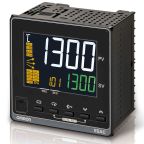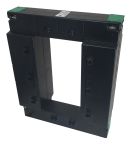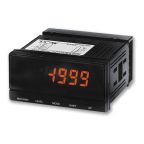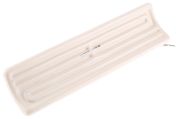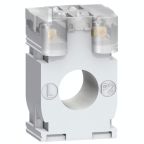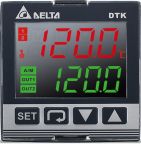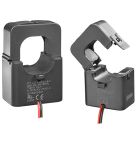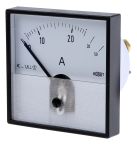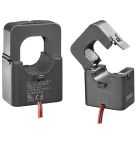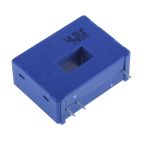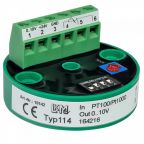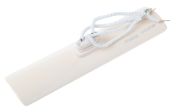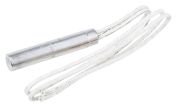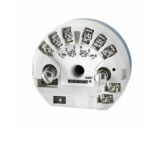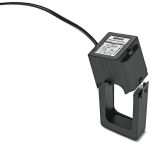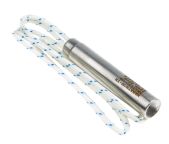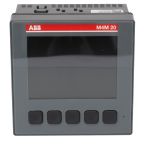Explore RS’s catalog of process control equipment, essential for managing complex processes and automation environments. These systems enable fully automated industrial facilities to adjust parameters without requiring human intervention.
By minimizing errors and enhancing productivity, process control systems can significantly improve operations and streamline workflows within industrial environments.
The Role of Instrumentation in Process Control
When conditions are not as expected, the operator may record indications to evaluate the process's current state. Due to the continuous and interactive nature of most processes, manual control is often impractical and unreliable. However, automation can be achieved with the help of instrumentation, enabling precise and consistent process management.
Instrumentation plays a significant part in ensuring industrial processes and generating systems are operating consistently. To maintain a process in its desired state, instruments are used for monitoring, recording, and controlling various parameters to ensure that processes operate within desired limits. These parameters typically include:
- Fluid pressure
- Fluid flow rate
- Objects' temperatures
- Fluid-filled vessel volume
- Chemical concentrations
- A machine's position
- Motion or acceleration
- Dimensions of an object
- Inventory count
- Electrical voltage
- Resistance or current
By accurately measuring these parameters, process equipment and controls ensure optimal performance, reduce downtime, and maintain product quality. Process monitoring devices, like sensors and transmitters, provide real-time data, empowering operators to make informed decisions and adjustments.
Key Process Control Devices and Their Applications
A wide range of process control devices is available to meet the specific needs of various industries, including fluid control and energy monitoring. These devices are integral to optimizing system performance, ensuring workplace safety, and enhancing efficiency across diverse applications. They include:
Temperature Controllers
Temperature controllers are essential for maintaining precise temperature conditions in storage facilities, manufacturing processes, and other temperature-sensitive environments. By regulating heating and cooling systems, they ensure consistent product quality and prevent damage caused by temperature fluctuations.
Panel Meters
Available in digital and analog formats, panel meters provide vital visibility into process systems and electrical power measurement. These devices are crucial for monitoring voltage, current, and frequency in real-time, enabling operators to make informed decisions and quickly respond to any abnormalities in the system.
Timers & Counters
Timers and counters play a crucial role in the automation and control of electrical machinery and systems, enabling pre-set responses for precise operations. They are used in various applications, such as sequential control, event counting, and time-delay functions, to ensure accurate and efficient process management.
Current transformers are used to measure current flow in high-voltage lines, making them essential for monitoring and managing power grids. By providing accurate current readings, they help protect equipment from overload and ensure the safe and efficient distribution of electricity across networks.
Energy Meters
By measuring electricity consumption, energy meters help businesses track energy usage and identify potential savings opportunities. These devices are critical for energy management especially in manufacturing plants, enabling companies to reduce costs, improve energy efficiency, and achieve sustainability goals.
Choosing the Right Process Control Equipment
With a wide array of process control solutions available in the Philippines, it's essential to consider several factors when choosing the right equipment for your needs.
Matching Equipment to Industry Requirements
The first step in selecting the right process control equipment is to ensure it aligns with the specific requirements of your industry. Different sectors like manufacturing, pharmaceuticals and energy, have unique needs and standards. Understanding these requirements is essential for choosing devices that effectively meet industry demands, enhance system automation, and contribute to operational success.
Operational Capacity and Scalability
Operational capacity and scalability are vital considerations when choosing process control equipment. It is essential to choose equipment that can handle current production volumes and can be easily scaled to accommodate future growth. Scalable solutions ensure that your operations remain efficient and cost-effective as your business expands.
Environmental Adaptability
Environmental adaptability is another key factor in the selection process. Devices should be able to operate reliably in various environmental conditions, such as extreme temperatures, humidity, or exposure to corrosive materials. Choosing equipment designed for your specific environmental challenges ensures consistent performance and longevity.
Customization & Flexibility
Customization and flexibility allow for tailored solutions that meet unique operational needs. Equipment that can be customized to fit specific processes enhances efficiency and ensures seamless integration with existing systems. Furthermore, flexibility in design and functionality enables easier modifications and upgrades as technology progresses.
Durability and Maintenance
Durable equipment reduces the risk of breakdowns and prolongs the lifespan of your systems, leading to lower maintenance costs and increased operational uptime. Choosing equipment with straightforward maintenance requirements and readily available support ensures smooth and continuous operation.
Understanding Final Control Devices
Final control devices serve as the mechanisms that directly implement the regulated actions dictated by the process control system. These devices include:
- Throttle Valves: They are essential for regulating fluid flow in pipelines, allowing precise control over pressure and flow rates. Throttle valves help maintain system balance and ensure efficient fluid transport, particularly in industries like oil and gas, water treatment, and chemical processing.
- Electric Motors: These motors provide mechanical power for a wide range of applications, from driving pumps and compressors to operating conveyor systems. Electric motors are integral to the automation of mechanical processes, ensuring smooth and efficient operation across various industrial tasks.
- Electric Heaters: They are used for temperature control, ensuring that processes requiring specific thermal conditions are maintained accurately. These heaters are commonly found in applications such as chemical reactions, material drying, and food processing, where precise temperature regulation is critical.
These devices respond to signals from the control system, adjusting their output to keep the process variable within the desired range.
Purchasing Process Control Equipment in the Philippines
At RS Philippines, we offer an extensive range of process control devices designed to meet the diverse needs of industries, from manufacturing and energy to pharmaceuticals and food processing.
Our selection of process control solutions ensures that businesses can find the right equipment to enhance their systems. With a focus on quality, reliability, and innovation, RS provides the tools necessary to optimize performance, improve safety, and drive efficiency across all industrial sectors in the Philippines.
Check out our delivery information to know how we can bring the products you need, wherever you are.
















